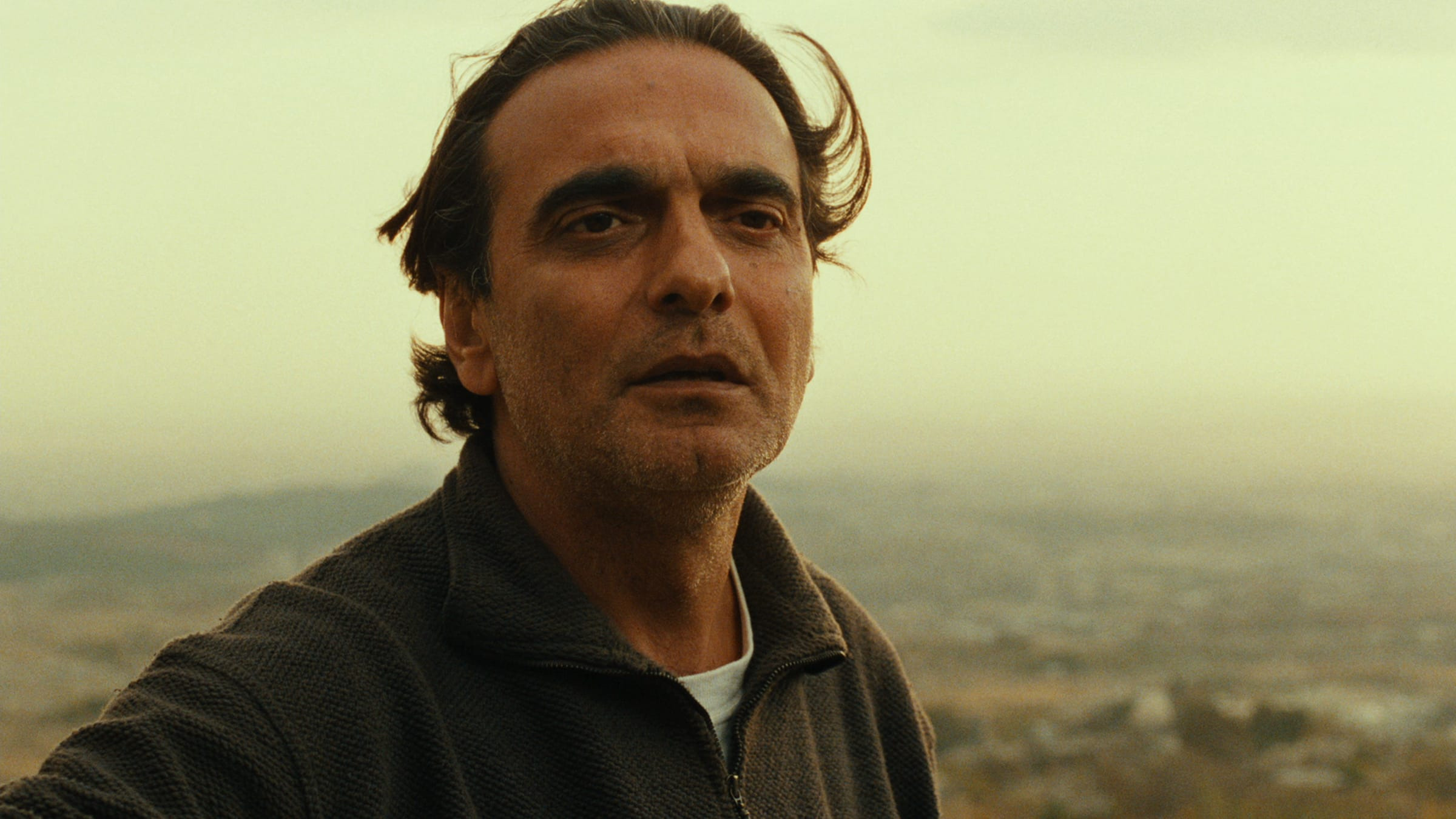RELATED ARTICLE
Close-up: Prison and Escape
The Koker Trilogy: Journeys of the Heart
The Criterion Collection

Consider this an afterword to Taste of Cherry (1997), the feature that brought its director, Abbas Kiarostami, to full international prominence, after it became the first Iranian movie to win the Palme d’Or at the Cannes Film Festival (where it shared the prize with The Eel, by Shohei Imamura). It is best to see Taste of Cherry without reading anything about it first. It should be seen cold—cold like the ground into which the film’s protagonist, Mr. Badii (Homayoun Ershadi), seeks to consign himself.
Taste of Cherry uses the cinema to figure out if life is worth living, a hard question that seems superficial because so many films so easily reach the conclusion that it is. They show us a wedding, a happy family, a good job, a lottery winner. They indulge our desire to see things work out for the best. Kiarostami does none of that. Taste of Cherry excludes, cutting away plot and backstory, two things that can bog down a film. It goes in circles and meanders, the concision of its ninety-nine minutes becoming clear only in retrospect. It is meant to conceal, even to frustrate. Instead of tying the story up neatly, its ending does something else.
Kiarostami’s unexpected death in a Paris hospital in the summer of 2016, at age seventy-six, was a blow to cinephiles all over the world. It took a while for us to recover. A retrospective of his films traveled the United States in 2019, providing a much-needed summation of his career, which had started with 1970’s Bread and Alley, the first of many films he made for Tehran’s state-run Institute for the Intellectual Development of Children and Young Adults. Over the course of the decades that followed, he became the cinema’s great poet of the ordinary and the everyday, of the unnoticed.
Kiarostami’s films portray friendship and its difficulties, its fragility and uncertainty. Nowhere is that more striking than in Homework (1989), which begins as a documentary about schoolboys who haven’t finished their homework, then proceeds through a series of interviews in which students face Kiarostami’s camera alone to discuss their fraught relationships with their parents. Near the film’s end, a boy named Majid becomes paralyzed in front of Kiarostami, unable to speak, distraught that he can’t be interviewed accompanied by his friend Molai. Majid’s anguish is wrenching and difficult to watch. Kiarostami records this child’s breakdown, then the calming effect Molai has on him, in a way that suggests Majid’s pain is a problem larger than just one boy’s anxiety. The children in Homework are growing up neglected by their parents and teachers, who are quick to punish and unconcerned about nurturing them as fellow human beings.
By the nineties, Kiarostami had begun to complicate human relationships further, by folding and refolding them into issues of cinematic representation and narrative ambiguity. In Close-up (1990)—the true story of a man (Hossein Sabzian) who plays himself as the impostor he was—the yearning for human connection comes to the fore in new ways. In focusing on Sabzian, Kiarostami saw something that hadn’t yet been identified in cinema: the exact point where, if for only a moment, the movies and real life dissolve into each other, before detaching again, as mirror images.
After Kiarostami's death, Mohsen Makhmalbaf—his fellow member of what is sometimes called the Iranian New Wave, who in Close-up plays himself, the filmmaker whom Sabzian was arrested for impersonating—summed up his colleague’s life and career for the BBC: “He could show you how friendship could take you out of loneliness.” The title of the 1987 film that begins the director’s Koker Trilogy asks the main Kiarostamian question: Where Is the Friend’s House? The following two films in the trilogy, And Life Goes On (1992) and Through the Olive Trees (1994), take place in the aftermath of the devastating 1990 Manjil-Rudbar earthquake. Those films put Kiarostami on the road to Taste of Cherry, in which he examines the precariousness of life without the backdrop of natural disaster. In Taste of Cherry, the calamity is private and subjective. We are never told what it is. Perhaps it is life itself.
“The loose stories, contemplative style, and relative absence of plot in Kiarostami’s films free us from feeling manipulated, even as we are patiently led to endings that are quite often emotionally shattering.”

“If, after this film’s ninety-nine minutes, neither we nor Mr. Badii have come to know whether life is worth living, so be it.”
